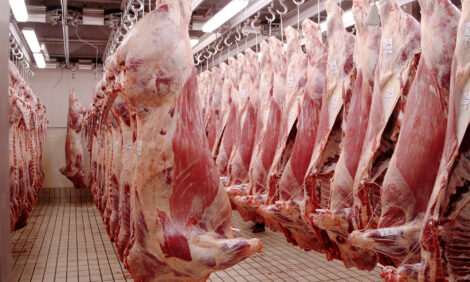



New Pathways for Sustainable Agriculture
GERMANY - Hedges, flowering strips and other semi-natural habitats provide food and nesting places for insects and birds in agricultural landscapes. This also has advantages for agriculture: bees, flies, beetles and other animal groups pollinate crops and control pest insects in adjacent fields.But how much of these habitats is necessary and how should they be arranged to make use of these nature-based ecosystem services?

[Photos: Matthias Tschumi]
This question has been addressed by a new study from the Chair of Animal Ecology and Tropical Biology at the Biocenter of Julius-Maximilians-Universität Würzburg (JMU) in Bavaria, Germany. The results are published in the journal Ecology Letters.
Small-scale land use is advantageous
According to the study, biodiversity, pollination, and pest control can be improved in landscapes even with a relatively small amount of non-crop habitat. To reach this effect, these habitats must be arranged to create a small-scale agricultural landscape.
For this study, Dr Emily A. Martin's team took a closer look at data from ten European countries and 1,515 different agricultural landscapes. This clearly showed that small-scale land use is advantageous: it leads to a greater density of beneficial insects and spiders. And it increases the services provided by ecosystems for agriculture - pollination and natural pest control.
Creating a web of semi-natural habitats
"In order to reduce pests and promote biodiversity, increasing the density of semi-natural habitat elements can be an ideal solution for farms. You don't have to remove much land from cultivation to reach a significant effect," says Dr Martin.
"The implementation of these findings would be an important step forward in the effort to achieve a sustainable and biodiversity-friendly agriculture," Professor Ingolf Steffan-Dewenter, head of the Chair of Animal Ecology and Tropical Biology and co-author of the study, emphasises.
The JMU research team is now focusing on intensified cooperation with agricultural and environmental stakeholders. The scientists want to help implement a landscape management system that benefits everyone - nature and mankind.
TheCattleSite News Desk


